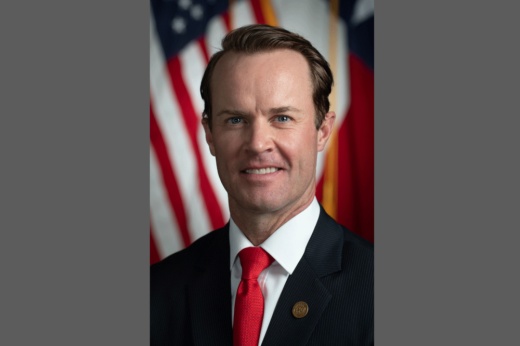In a news release, Phelan endorsed two Democratic priorities: extending Medicaid eligibility for new mothers to one year, and exempting diapers and feminine hygiene products from state sales taxes. He also backed two bills proposed by Republicans that would allow Texans to determine how their personal data, as well as their children’s data, is collected and used online.
The four bills reflect “some of the most pressing issues on the minds of Texans today,” Phelan said in the release. He said they were “great starting points” for the House and emphasized that further priorities would be announced soon.
House Bills 1-20 are typically reserved for the top priorities of the speaker. By Feb. 24, four of those 20 bills had been filed, including HB 1, the proposed state budget for 2024-25. The biennial budget is the only bill lawmakers are required to pass before the legislative session ends May 29.
HB 4 was filed by Rep. Giovanni Capriglione, R-Southlake, on Feb. 16. The bill, known as the Texas Data Privacy and Security Act, would give people more authority to determine how companies collect and monetize their online data. Companies that misuse people’s data may have to pay a fine of up to $7,500 for each violation of the act, according to the proposed legislation.
Rep. Shelby Slawson, R-Stephenville, also filed HB 18 on Feb. 16. The Securing Children Online through Parental Empowerment Act aims to help Texas parents keep their children safe online.I would like to thank Speaker @DadePhelan for his leadership and making it a priority to put Texans in control of their data. I look forward to working with my colleagues to pass this important bill #txlege #TXHD98 https://t.co/luJPzxBVpN
— Giovanni Capriglione (@VoteGiovanni) February 23, 2023
According to a news release, the bill would allow parents to choose how much and what kind of their children's data is collected online. Online platforms would be required to get parental consent before collecting 13- to 17-year-olds’ data, while advertisers would have to clearly identify themselves online.
“Digital platforms are aggressively and unapologetically harvesting our children’s online presence and activity data for profit motives,” Slawson said in the release. “Our children’s private online data is used by corporate algorithms to further direct, cultivate, and lure underage kids into information and clicks that increase dependence and reliance on those platforms to further increase corporate profits.”
The SCOPE Act would also give parents more information about the “addiction-inducing” algorithms used on social media and allow them to opt out, the release said.
“I am eager to see our chamber take on Big Tech, which for too long has taken advantage of the data and privacy of Texans and especially our children, who are vulnerable to predatory and addicting algorithms and advertisements on social media platforms,” Phelan said. “Putting Texans and Texas parents back in the driver’s seat on this issue is a priority for our chamber this session.”Thank you Speaker @DadePhelan for prioritizing our children’s security online via HB18’s SCOPE Act. Looking forward to the #TexasHouse leading on this crucial issue. #txlege #SCOPEact https://t.co/q9NG2KDvtI
— Shelby Slawson (@ShelbySlawson) February 23, 2023
Phelan also announced his support for HB 12, which was filed by Rep. Toni Rose, D-Dallas, on Feb. 23. The bill would make new mothers eligible for Medicaid benefits for 12 months after childbirth.
In 2021, the House approved Rose’s proposal to extend Medicaid coverage for one year postpartum, but the Senate cut it to six months. The plan was not approved by the federal government, so low-income Texans currently have access to two months of coverage after their child is born.
“I remain hopeful we can provide comprehensive health care to women who give birth in Texas,” Rose said in a news release, calling her bill a “solid solution for Texas women.”
Expanding postpartum Medicaid coverage is one of the priorities of the Texas Democratic Party and has been widely supported by Democrats in both the House and Senate. Gov. Greg Abbott also encouraged lawmakers to extend coverage in his budget proposal.
“As I have said before, it is essential that the Texas House makes meaningful progress this year on better supporting mothers and children in the state—and that starts with extending health coverage for new moms to a full year,” Phelan said.
In a push to make baby and period products more affordable, Rep. Donna Howard, D-Austin, filed HB 300 on Feb. 23. The bill would make children’s diapers, baby wipes, baby bottles, feminine hygiene products, maternity clothing and breast milk pumping products exempt from the Texas sales tax.
According to a budget study from the University of Houston’s Hobby School of Public Affairs, 75% of Texans support exempting feminine products from the sales tax, while 81% support exempting diapers and baby wipes.
Thank you Speaker @DadePhelan for prioritizing hard-working Texas families. #txlege https://t.co/U198PvdrMT
— Donna Howard (@DonnaHowardTX) February 23, 2023





